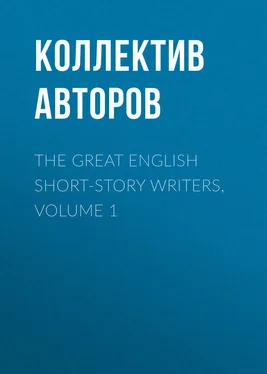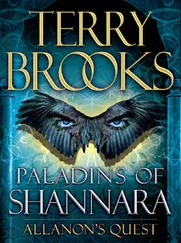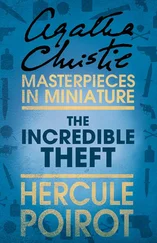Коллектив авторов - The Great English Short-Story Writers, Volume 1
Здесь есть возможность читать онлайн «Коллектив авторов - The Great English Short-Story Writers, Volume 1» — ознакомительный отрывок электронной книги совершенно бесплатно, а после прочтения отрывка купить полную версию. В некоторых случаях можно слушать аудио, скачать через торрент в формате fb2 и присутствует краткое содержание. Жанр: foreign_antique, foreign_prose, на английском языке. Описание произведения, (предисловие) а так же отзывы посетителей доступны на портале библиотеки ЛибКат.
- Название:The Great English Short-Story Writers, Volume 1
- Автор:
- Жанр:
- Год:неизвестен
- ISBN:нет данных
- Рейтинг книги:3 / 5. Голосов: 1
-
Избранное:Добавить в избранное
- Отзывы:
-
Ваша оценка:
- 60
- 1
- 2
- 3
- 4
- 5
The Great English Short-Story Writers, Volume 1: краткое содержание, описание и аннотация
Предлагаем к чтению аннотацию, описание, краткое содержание или предисловие (зависит от того, что написал сам автор книги «The Great English Short-Story Writers, Volume 1»). Если вы не нашли необходимую информацию о книге — напишите в комментариях, мы постараемся отыскать её.
The Great English Short-Story Writers, Volume 1 — читать онлайн ознакомительный отрывок
Ниже представлен текст книги, разбитый по страницам. Система сохранения места последней прочитанной страницы, позволяет с удобством читать онлайн бесплатно книгу «The Great English Short-Story Writers, Volume 1», без необходимости каждый раз заново искать на чём Вы остановились. Поставьте закладку, и сможете в любой момент перейти на страницу, на которой закончили чтение.
Интервал:
Закладка:
"It felle abowght the Lamasse tyde,
When husbands wynn ther haye,
The dowghtye Dowglasse bowynd hym to ryde
In England to take a praye."
Thomas Hood's poem of The Dream of Eugene Aram , written at a time when the prose short-story, under the guidance of Hawthorne and Poe, was just beginning to take its place as a separate species of literary art, has never been surpassed for short-story technique by any of the practitioners of prose. Prof. Brander Matthews has pointed out that "there were nine muses in Greece of old, and no one of these daughters of Apollo was expected to inspire the writer of prose-fiction." 9 9 In his introduction to Materials and Methods of Fiction , by Clayton Hamilton, published by the Baker & Taylor Co., New York.
He argues from this that "prose seemed to the Greeks, and even to the Latins who followed in their footsteps, as fit only for pedestrian purposes." It is more probable that, as regards prose-fiction, they did not realize that they were called upon to explain the omission of the tenth muse. Her exclusion was based on no reasoned principle, but was due to a sensuous art-instinct: the Greeks felt that the unnatural limitations of the poetic medium were more in keeping with the unnatural 10 10 "The short-story is artificial, and to a considerable degree unnatural. It could hardly be otherwise, for it takes out of our complex lives a single person or a single incident and treats that as if it were complete in itself. Such isolation is not known to nature." – Page 22 of Short-Story Writing , by Charles Raymond Barrett, published by the Baker & Taylor Co., New York.
brevity of a story which must be short. The exquisite prose tales which have been handed down to us belong to the age of their decadence as a nation; in their great period their tellers of brief tales unconsciously cast their rendering in the poetic mould. 11 11 For example, the story told by Demodocus of The Illicit Love of Ares for Aphrodite, and the Revenge which Hephaestus Planned – Odyssey, Bk. VIII.
In natures of the highest genius the most arduous is instinctively the favorite task.
Chaucer, by reason of his intimate acquaintance with both the poetry and prose-fiction of Boccaccio, had the opportunity to choose between these two mediums of short-story narration; and he chose the former. He was as familiar with Boccaccio's poetic method, as exemplified in the Teseide , as with his prose, as exemplified at much greater length in the Decameron , for he borrowed from them both. Yet in only two instances in the Canterbury Tales does he relapse into prose.
The Teseide in Chaucer's hands, retaining its poetic medium, is converted into the Knight's Tale ; while the Reeve's Tale , the Franklin's , and the Shipman's , each borrowed from the prose version of the Decameron , are given by him a poetic setting. This preference for poetry over prose as a medium for short-story narration cannot have been accidental or unreasoned on his part; nor can it be altogether accounted for by the explanation that "he was by nature a poet," for he did experiment with the prose medium to the extent of using it twice. He had the brilliant and innovating precedent of the Decameron , and yet, while adopting some of its materials, he abandoned its medium. He was given the opportunity of ante-dating the introduction of technique into the English prose short-story by four hundred and fifty years, and he disregarded it almost cavalierly. How is such wilful neglect to be accounted for? Only by his instinctive feeling that the technique, which Boccaccio had applied in the Decameron , belonged by right to the realm of poetry, had been learned in the practising of the poetic art, and could arrive at its highest level of achievement only in that medium.
That in Chaucer's case this choice was justified cannot be disputed; the inferiority of the short-story technique contained in his two prose efforts, when compared with that displayed in the remainder of the Canterbury Tales , is very marked. Take, for instance, the Prioress' Tale and apply to it the five short-story tests established by Poe, as a personal discovery, four and a half centuries later; it survives them all. It attains, in addition, the crowning glory, coveted by Stevenson, of appearing typical . There may never have been a Christian child who was martyred by the Jews in the particularly gruesome way described – probably there never was; but, in listening to the Prioress, it does not enter into our heads to doubt her word – the picture which she leaves with us of how the Christian regarded the Jew in the Middle Ages is too vivid to allow any breathing-space for incredulity. No knowledge of mediaeval anti-Jewish legislation, however scholarly, can bring us to realize the fury of race-hatred which then existed more keenly than this story of a little over two thousand words. By its perusal we gain an illuminating insight into that ill-directed religious enthusiasm which led men on frenzied quests for the destruction of the heretic in their own land and of the Saracen abroad, causing them to become at one and the same time unjust and heroic. In a word, within the compass of three hundred lines of verse, Chaucer contrives to body forth his age – to give us something which is typical .
The Morte D'Arthur of Malory is again a collection of traditional stories, as is the Gesta Romanorum , and not the creative work of a single intellect. As might be expected, it straggles, and overlays its climax with a too-lavish abundance of incidents; it lacks the harmony of values which results from the introduction of a unifying purpose — i. e ., of art. Imaginative and full of action though the books of the Morte D'Arthur are, it remained for the latter-day artist to exhaust their individual incidents of their full dramatic possibilities. From the eyes of the majority of modern men the brilliant quality of their magic was concealed, until it had been disciplined and refashioned by the severe technique of the short-story.
By the eighteenth century the influence of Malory was scarcely felt at all; but his imaginativeness, as interpreted by Tennyson, in The Idylls of the King , and by William Morris, in his Defence of Guinevere , has given to the Anglo-Saxon world a new romantic background for its thoughts. The Idylls of the King are not Tennyson's most successful interpretation. The finest example of his superior short-story craftsmanship is seen in the triumphant use which he makes of the theme contained in The Book of Elaine , in his poem of The Lady of Shalott . Not only has he remodelled and added fantasy to the story, but he has threaded it through with atmosphere – an entirely modern attribute, of which more must be said hereafter.
So much for our contention that the laws and technique of the prose short-story, as formulated by Poe, were first instinctively discovered and worked out in the medium of poetry.
VI
" The Golden Ass of Apuleius is, so to say, a beginning of modern literature. From this brilliant medley of reality and romance, of wit and pathos, of fantasy and observation, was born that new art, complex in thought, various in expression, which gives a semblance of frigidity to perfection itself. An indefatigable youthfulness is its distinction." 12 12 From the introduction, by Charles Whibley, to the Tudor Translations' edition by W.E. Henley, of The Golden Ass of Apuleius , published by David Nutt, London, 1893. All other quotations bearing upon Apuleius are taken from the same source.
Интервал:
Закладка:
Похожие книги на «The Great English Short-Story Writers, Volume 1»
Представляем Вашему вниманию похожие книги на «The Great English Short-Story Writers, Volume 1» списком для выбора. Мы отобрали схожую по названию и смыслу литературу в надежде предоставить читателям больше вариантов отыскать новые, интересные, ещё непрочитанные произведения.
Обсуждение, отзывы о книге «The Great English Short-Story Writers, Volume 1» и просто собственные мнения читателей. Оставьте ваши комментарии, напишите, что Вы думаете о произведении, его смысле или главных героях. Укажите что конкретно понравилось, а что нет, и почему Вы так считаете.












